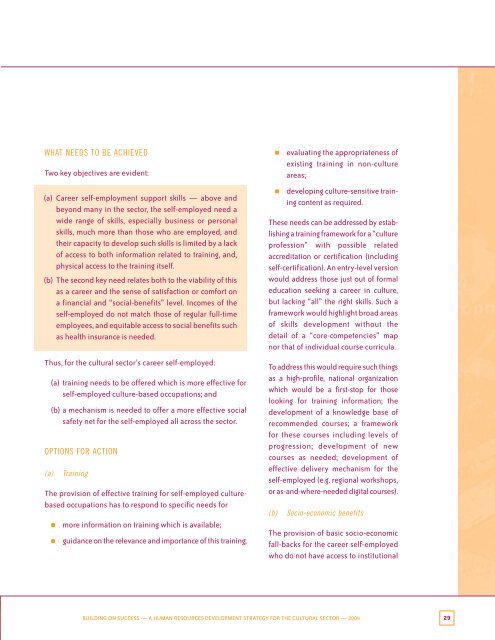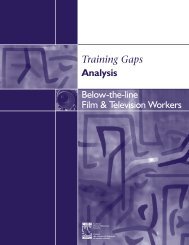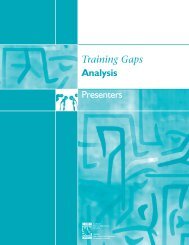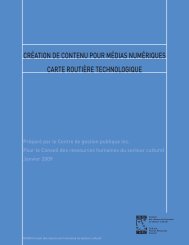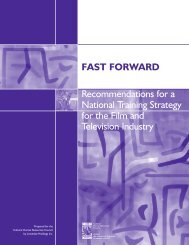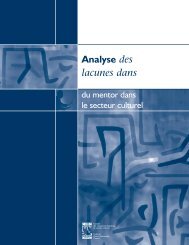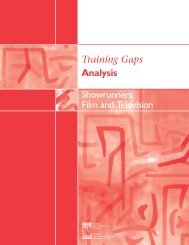Full document
Full document
Full document
Create successful ePaper yourself
Turn your PDF publications into a flip-book with our unique Google optimized e-Paper software.
WHAT NEEDS TO BE ACHIEVED<br />
Two key objectives are evident:<br />
(a) Career self-employment support skills — above and<br />
beyond many in the sector, the self-employed need a<br />
wide range of skills, especially business or personal<br />
skills, much more than those who are employed, and<br />
their capacity to develop such skills is limited by a lack<br />
of access to both information related to training, and,<br />
physical access to the training itself.<br />
(b) The second key need relates both to the viability of this<br />
as a career and the sense of satisfaction or comfort on<br />
a financial and “social-benefits” level. Incomes of the<br />
self-employed do not match those of regular full-time<br />
employees, and equitable access to social benefits such<br />
as health insurance is needed.<br />
Thus, for the cultural sector’s career self-employed:<br />
(a) training needs to be offered which is more effective for<br />
self-employed culture-based occupations; and<br />
(b) a mechanism is needed to offer a more effective social<br />
safety net for the self-employed all across the sector.<br />
OPTIONS FOR ACTION<br />
(a)<br />
Training<br />
The provision of effective training for self-employed culturebased<br />
occupations has to respond to specific needs for<br />
• more information on training which is available;<br />
• guidance on the relevance and importance of this training;<br />
• evaluating the appropriateness of<br />
existing training in non-culture<br />
areas;<br />
• developing culture-sensitive training<br />
content as required.<br />
These needs can be addressed by establishing<br />
a training framework for a “culture<br />
profession” with possible related<br />
accreditation or certification (including<br />
self-certification). An entry-level version<br />
would address those just out of formal<br />
education seeking a career in culture,<br />
but lacking “all” the right skills. Such a<br />
framework would highlight broad areas<br />
of skills development without the<br />
detail of a “core-competencies” map<br />
nor that of individual course curricula.<br />
To address this would require such things<br />
as a high-profile, national organization<br />
which would be a first-stop for those<br />
looking for training information; the<br />
development of a knowledge base of<br />
recommended courses; a framework<br />
for these courses including levels of<br />
progression; development of new<br />
courses as needed; development of<br />
effective delivery mechanism for the<br />
self-employed (e.g. regional workshops,<br />
or as-and-where-needed digital courses).<br />
(b)<br />
Socio-economic benefits<br />
The provision of basic socio-economic<br />
fall-backs for the career self-employed<br />
who do not have access to institutional<br />
BUILDING ON SUCCESS — A HUMAN RESOURCES DEVELOPMENT STRATEGY FOR THE CULTURAL SECTOR — 2004 29


